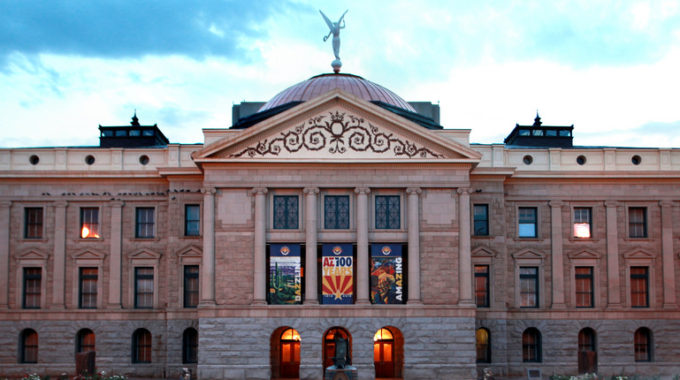tinues to lead in the Republican race to succeed Douglas, but the result remains too close to call as Maricopa County continues to verify signatures in more than 100,000 early ballots that were returned on election day. The Republican victor in the race will run against Kathy Hoffman, a speech therapist who won the Democratic nomination.
When the final votes are tallied, the winners in Tuesday’s primary election will renew their campaigns in preparation for the November general election. Voters will have the chance to elect new officials and to decide the outcome of several ballot propositions.
Click here for a full list of Congressional, statewide, and legislative election results.
Arizona Supreme Court Rulings Remove Two Initiatives
Due to rulings from the Arizona Supreme Court this week, voters will not vote on two citizen initiatives that were submitted earlier this summer.
The Court ruled that the Invest in Education initiative supporters did not adequately describe the impact of the proposed increase to specific income taxes on their petitions, and therefore did not meet statutory requirements. (The debate over income tax impact has unfolded at the legislature, as well.)
The Supreme Court also ruled that the Outlaw Dirty Money initiative would not appear on the ballot because some individuals who collected signatures on the petitions failed to appear in court to discuss their work on the initiative. State law requires signature gatherers to respond to subpoenas, and signatures collected by the individuals who did not comply were disqualified. Without them, the initiative did not meet the required number of signatures to move to the ballot.
The rulings drew very divided reactions. Opponents of the initiatives celebrated the successful legal action against the proposals, but supporters expressed frustration and pledged to continue advocating for the education funding and campaign finance changes they’d hoped to put before voters this year.
DES Begins Process to Offer ABLE Act Service in Arizona
In the 2016 legislative session, state leaders enacted a law that created tax-free savings accounts for some individuals with disabilities. The accounts are authorized under the federal Achieving a Better Life Experience (ABLE) Act. The Arizona law created an Oversight Committee to guide the Arizona Department of Economic Security’s implementation of the program.
Although Arizona’s ABLE program formally launched in March of this year, last week DES proposed rules that will govern the ABLE Act accounts. The rules are open for public comment until October 3 and will likely become effective early next year after the Governor’s Regulatory Review Council approves them.
For more information on Arizona’s ABLE Accounts, click here.
What’s Next?
Senator McCain’s memorial at the National Cathedral in Washington, D.C. is Saturday, September 1 at 7:00 a.m. Arizona time (click here for a livestream of the event). Next week, Governor Ducey is expected to name his appointee to fill the Senator’s seat for two years. (In 2020, voters will have the chance to elect someone to the Senate seat for another two years. In 2022, at the end of what would have been Senator McCain’s term, Arizonans will vote for a candidate to start a new six-year term in the Senate.)
There is widespread speculation about who the Governor may appoint, but he has avoided commenting on the decision throughout the week of tributes to Senator McCain.
On the Bright Side…
Barrow Neurological Institute continues to provide new insights into how students and parents make decisions about school sports due to the growing understanding of concussions, and the United Food Bank celebrated the opening of a new refrigeration unitthat will expand its service to Arizonans – just in time for Hunger Action Month in September.

